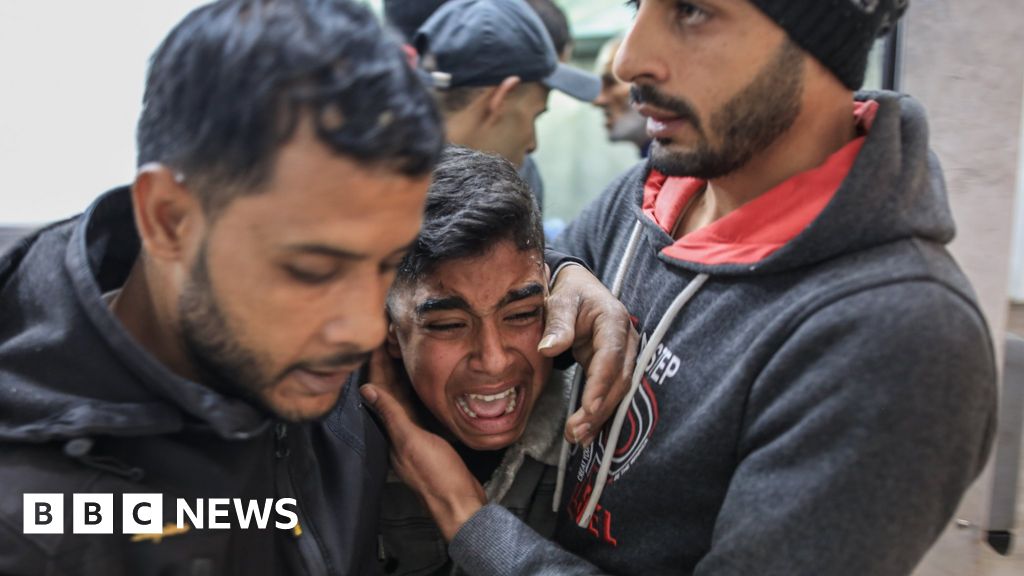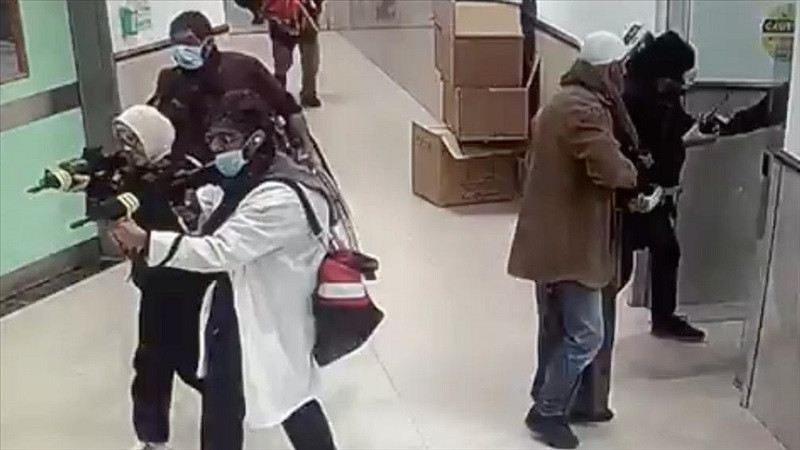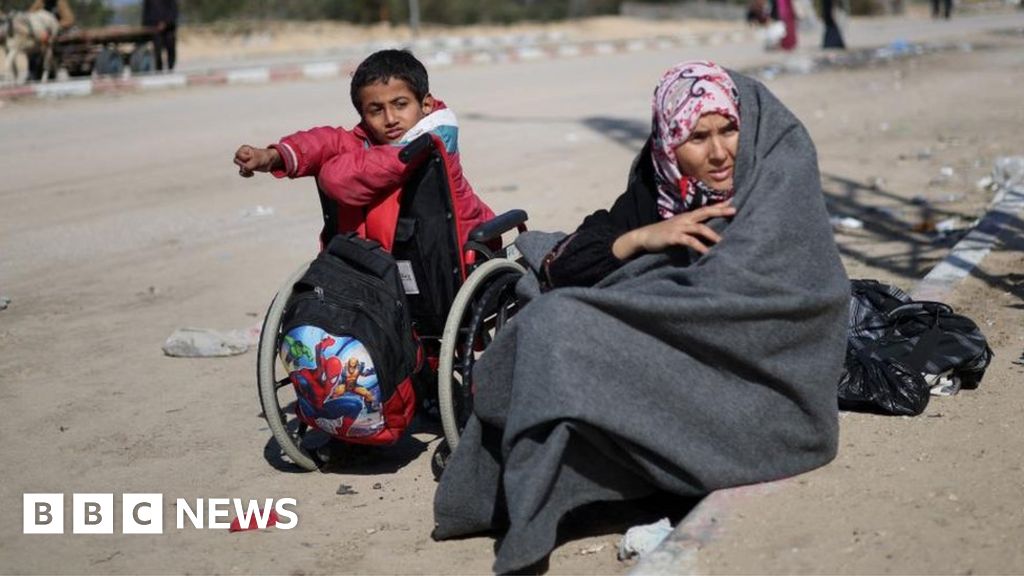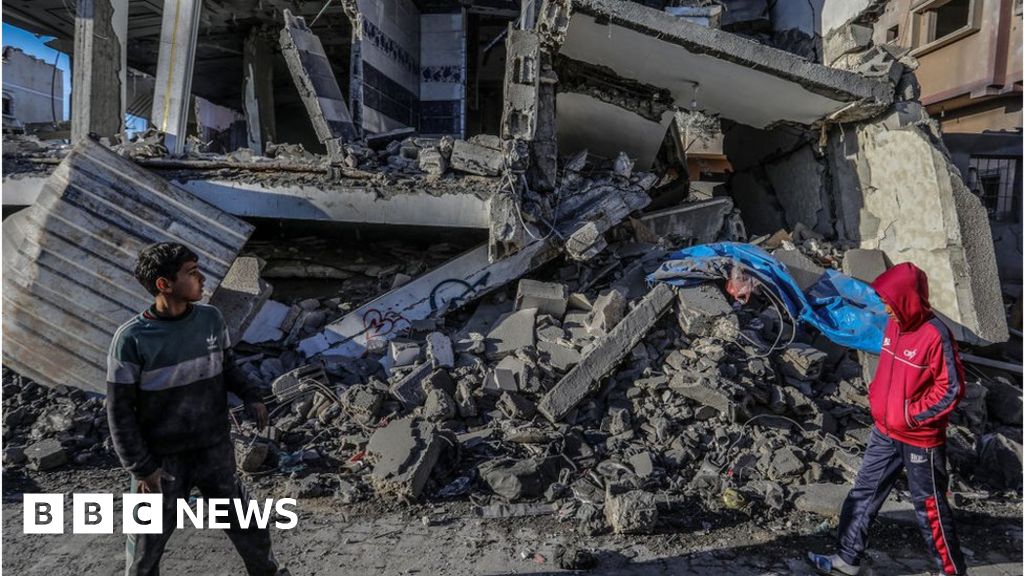- Joined
- Aug 29, 2023
- Runs
- 42,097
Netanyahu defies pressure over Palestinian state
Benjamin Netanyahu has again insisted Israel should retain security control over all the Palestinian territories.
The Israeli prime minister said this condition was "contrary" to a future Palestinian state being established.
His comments on Saturday defied pressure on his government from the US and others to commit to future Palestinian statehood.
Mr Netanyahu and US President Joe Biden discussed the future of the Palestinian territories in a call on Friday.
The Israeli PM's latest intervention appeared to deepen a public divide between his government and the US over future governance of Gaza and the West Bank when the Gaza conflict comes to an end.
The US believes a future Palestinian state alongside Israel - known as a "two-state solution" - is vital for long-term stability. But the White House acknowledged this week the US and Israeli governments "clearly see things differently".
Speaking to reporters after the two leaders held a call for the first time in almost a month, Mr Biden insisted a two-state solution was still possible with Mr Netanyahu in office.
"There are a number of types of two-state solutions. There's a number of countries that are members of the UN that... don't have their own militaries," he said.
But on Saturday Mr Netanyahu doubled down on his position, which he has held for much of his political career and repeated earlier this week.
A statement released by his office read: "In his conversation with President Biden, Prime Minister Netanyahu reiterated his policy that after Hamas is destroyed Israel must retain security control over Gaza to ensure that Gaza will no longer pose a threat to Israel, a requirement that contradicts the demand for Palestinian sovereignty."
Also on Saturday, in a post on X - formerly Twitter - he said Israel must retain "security control over the entire area west of Jordan", an area which also encompasses the Israeli-occupied West Bank territory.
The comments will dampen hopes in some circles that the Gaza crisis could result in Israeli and Palestinian leaders restarting diplomatic negotiations and kickstarting the dormant peace process.
Mr Netanyahu's increasing isolation abroad comes amid growing unpopularity at home and protests over the fate of the estimated 130 hostages still being held inside Gaza by Hamas.
Hamas killed about 1,300 people - mostly civilians - and took 240 hostages in their surprise attack on southern Israel on 7 October.
Thousands of protesters, including relatives of those still missing, gathered in Tel Aviv on Saturday, urging Mr Netanyahu to reach a truce to allow the hostages home.
Gil Dickmann, whose cousin was captured on 7 October, said: "Dear Prime Minister Benjamin Netanyahu, we believe that you can bring them back. We believe in you.
"We know that you can sign this deal and bring about this victory to all the citizens of Israel. Just do it, Bibi. Just do it. Bring the hostages back home."
Israeli forces have continued to push into southern Gaza in search of top Hamas officials, who Israel believes are hiding in Khan Younis, the strip's second biggest city.
Locals have reported intense fighting in the area in recent days, including around the hospital. Israel says it raided a military compound and found underground explosives.
Officials from the Hamas-run health ministry said on Saturday 165 people had been killed in the territory in the past 24 hours, and the number killed overall since the conflict began was nearing 25,000.
Benjamin Netanyahu has again insisted Israel should retain security control over all the Palestinian territories.
The Israeli prime minister said this condition was "contrary" to a future Palestinian state being established.
His comments on Saturday defied pressure on his government from the US and others to commit to future Palestinian statehood.
Mr Netanyahu and US President Joe Biden discussed the future of the Palestinian territories in a call on Friday.
The Israeli PM's latest intervention appeared to deepen a public divide between his government and the US over future governance of Gaza and the West Bank when the Gaza conflict comes to an end.
The US believes a future Palestinian state alongside Israel - known as a "two-state solution" - is vital for long-term stability. But the White House acknowledged this week the US and Israeli governments "clearly see things differently".
Speaking to reporters after the two leaders held a call for the first time in almost a month, Mr Biden insisted a two-state solution was still possible with Mr Netanyahu in office.
"There are a number of types of two-state solutions. There's a number of countries that are members of the UN that... don't have their own militaries," he said.
But on Saturday Mr Netanyahu doubled down on his position, which he has held for much of his political career and repeated earlier this week.
A statement released by his office read: "In his conversation with President Biden, Prime Minister Netanyahu reiterated his policy that after Hamas is destroyed Israel must retain security control over Gaza to ensure that Gaza will no longer pose a threat to Israel, a requirement that contradicts the demand for Palestinian sovereignty."
Also on Saturday, in a post on X - formerly Twitter - he said Israel must retain "security control over the entire area west of Jordan", an area which also encompasses the Israeli-occupied West Bank territory.
The comments will dampen hopes in some circles that the Gaza crisis could result in Israeli and Palestinian leaders restarting diplomatic negotiations and kickstarting the dormant peace process.
Mr Netanyahu's increasing isolation abroad comes amid growing unpopularity at home and protests over the fate of the estimated 130 hostages still being held inside Gaza by Hamas.
Hamas killed about 1,300 people - mostly civilians - and took 240 hostages in their surprise attack on southern Israel on 7 October.
Thousands of protesters, including relatives of those still missing, gathered in Tel Aviv on Saturday, urging Mr Netanyahu to reach a truce to allow the hostages home.
Gil Dickmann, whose cousin was captured on 7 October, said: "Dear Prime Minister Benjamin Netanyahu, we believe that you can bring them back. We believe in you.
"We know that you can sign this deal and bring about this victory to all the citizens of Israel. Just do it, Bibi. Just do it. Bring the hostages back home."
Israeli forces have continued to push into southern Gaza in search of top Hamas officials, who Israel believes are hiding in Khan Younis, the strip's second biggest city.
Locals have reported intense fighting in the area in recent days, including around the hospital. Israel says it raided a military compound and found underground explosives.
Officials from the Hamas-run health ministry said on Saturday 165 people had been killed in the territory in the past 24 hours, and the number killed overall since the conflict began was nearing 25,000.
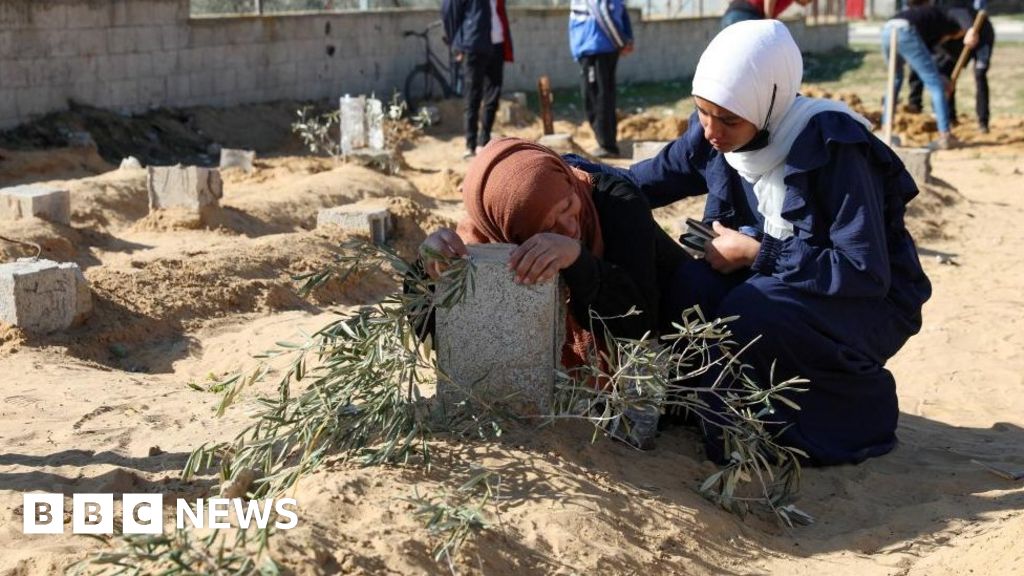
Israel-Gaza: Netanyahu defies Biden over Palestinian state
The comments deepen a rift with the US which believes a two-state solution is vital for long-term stability.








